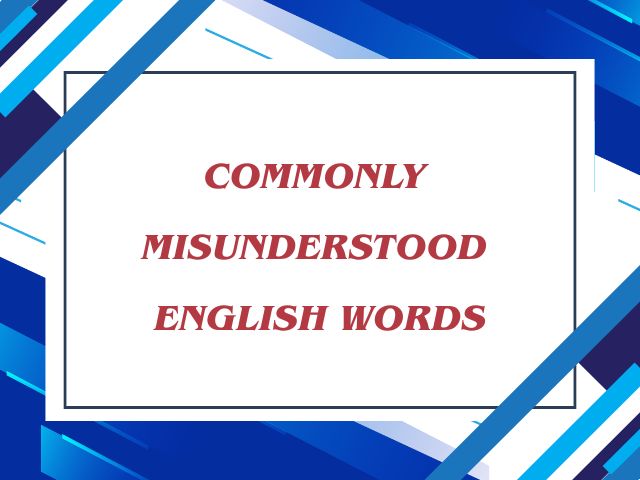Cách Hình Thức Sử Dụng Linking Word Trong Tiếng Anh
Trong quá trình học tiếng Anh, việc sử dụng linking word là một kỹ năng quan trọng giúp bạn nâng cao khả năng giao tiếp và viết thành văn một cách lưu loát. Đặc biệt, khi chuẩn bị cho các kỳ thi như IELTS, chứng chỉ Starters Movers Flyers hay chứng chỉ KET PET, việc sử dụng linking word đúng cách có thể mang lại điểm số cao và ấn tượng tốt.
Một trong những cách sử dụng linking word phổ biến là để kết nối ý kiến và luận điểm. Linking words cũng rất hữu ích để liên kết các câu trong văn bản, bạn có thể diễn đạt sự so sánh, tương phản hoặc phân tích giữa hai ý kiến hoặc tình huống khác nhau. Cùng tìm hiểu và ghi nhớ điểm ngữ pháp này thông qua bài viết sau nhé.
Các hình thức sử dụng Linking words
"In order to, so that, such a"
6. Mục đích (purpose)
Ta sử dụng (in order) to + verb (động từ) để diễn đạt lý do ta làm một việc gì đó. In order to trang trọng hơn to. Động từ sau to phải liên quan đến chủ từ của câu.
Paul has stopped playing tennis (in order) to spend more time with his family. (= Paul wants more time . . . )
Kate phoned the station (in order) to find out the times of the trains. (= Kate wanted to find out . . . )
(In order) to cũng có thể đứng trước:
(In order) to find out the times of the trains, Kate phoned the station.
Hình thức phủ định là in order not to:
I took a taxi in order not to be late.
7. Ta sử dụng so (that) + a statement (lời khẳng định) để giải thích vì sao một người đã làm điều gì đó. Mục đích thường ở cuối câu:
Paul has stopped playing tennis so (that) he has more time for his family.
Chủ từ của mệnh đề sau so không nhất thiết cũng là chủ từ của phần đầu câu:
Jack put sunscreen on the children so (that) the sun wouldn’t burn them.
8. Ta sử dụng so + adjective/adverb + (that) để giải thích kết quả hoặc hậu quả của một tình huống:
It was so cold (that) we all had to put on extra clothes.
The salad was so delicious (that) I asked for more!
9. Ta cũng có thể sử dụng so với much, little, many và few (+ noun):
There was so much snow they couldn’t get the car out.
Gary’s eaten so many apples (that) he feels sick.
10. Ta cũng có thể sử dụng such (a) (+ adjective) + noun để diễn đạt kết quả hoặc hậu quả của một tình huống:
It was such an awful film (that) most people left before the end.
So và such, nếu không kèm theo hậu quả của tình huống, sẽ làm cho tính từ hoặc danh từ mà chúng đi kèm mạnh nghĩa hơn:
I’m so hungry! (mạnh nghĩa hơn I’m hungry.)
He’s such an unfriendly man.
(mạnh nghĩa hơn He’s an unfriendly man.)
Thực hành văn phạm cách sử dụng Linking words
6. Ta sử dụng (in order) to để giải thích một lý do riêng biệt cho một hành động, thí dụ khi ta nói vì sao một người đã thay đổi thời khóa biểu thường xuyên của họ:
My dad’s getting up earlier these days in order to do some exercise before he goes to work. He’s also trying to come home earlier to help us with our homework.
7. Ta có thể sử dụng so (that) để giải thích lý do ta tạo ra các thay đổi:
Granny is coming to stay for a few days. Alex can move in with Peter so (that) Granny can have a bedroom for herself. We’ll have to keep her door closed so (that) the dog doesn’t wake her in the morning.
8. Ta có thể sử dụng so . . . that và such . . . that để giải thích kết quả của một tình huống. Nó cũng giải thích vì sao chúng ta làm điều đó. Tình huống ta đang trò chuyện về những gì đã xảy ra vào ngày nghỉ:
We found Venice so expensive that we only stayed for two days. We were in such a rush to see everything that we had to miss some of the most famous sights.
Bài tập:
C. Holiday problems
Read the email that Jane sent to a friend about the things that went wrong with her holiday. Complete the sentences with so . . . that and such . . . that.
Hi Kelly,
We just got back yesterday, and you wouldn’t believe all the things that went wrong!
Firstly, the chilsren couldn’t go sailing because there was a very strong wind.
0 The wind was so strong that the children couldn’t go sailing.
0 There was such a strong wind that the children couldn’t go sailing.
In the evening, we had to queue for the restaurant because there were a lot of people.
1 In the evening there were . . . . . . . . . . we had to queue for the restaurant.
We couldn’t go out because it was very cold.
2 It was . . . . . . . . . . we couldn’t go out.
My cousins moved to another hotel because there was a lot of noise.
3 There was . . . . . . . . . . my cousins moved to another hotel
We stayed in the shade because it was a very hot day.
4 It was . . . . . . . . . . we had to saty in the shade.
5 The day was . . . . . . . . . . we had to stay in the shade.
Jim couldn’t go on the last excursion because he had very little money left.
6 Jim had . . . . . . . . . . he couldn’t go on the last excursion.
And worst of all, we had to drink lots of water because the food was very salty.
7 And worst of all, the food was . . . . . . . . . . we had to drink lots of water.
8 And worst of all, it was . . . . . . . . . . we had to drink lots of water.
Apart from that, we had a wonderful time!
Jane
D. Moving abroad
Complete the following conversation by adding words or phrases from the box.
and - because - because - because - both - either - for - in order to
in order to - or - so much that - so that - such - such
MIA: My sister and her husband are thinking of moving to Canada, (0) because they can’t find decent jobs in Britain.
MATT: Your sister’s well qualified, isn’t she?
MIA: Yes, after school she speent a year abroad (1) . . . . . . . a couple of languages, and at university she studied (2) . . . . . . . she never had time to come home. That didn’t please my parents, of course.
MATT: Why not?
MIA: (3) . . . . . . . they paid all her expenses (4) . . . . . . . she didn’t need to take part-time jobs, thinking that she would spend more time at home. But she got a good degree. She even won a prize (5) . . . . . . . her final project.
MATT: And what about her husband?
MIA: Well, he’s got (6) . . . . . . . a degree (7) . . . . . . . several years’ experience, but he’s been out of work for almost six months. He says it’s (8) . . . . . . . a long time since he worked that he’s almost forgotten what it’s like. He’s applied for several jobs, but apparently he hasn’t been offered (9) . . . . . . . a permanent contract (10) . . . . . . . even a decent salary. And (11) . . . . . . . he’s well qualified, he refuses to accept poor conditions.
MATT: Are they going to go to Canada together?
MIA: No, he’s going first (12) . . . . . . . find some where to live.
MATT: Well, I hope they do very well, but I think it’s (13) . . . . . . . apity that young people have to go abroad to find work.
Đáp án:
C.
1. so many people that
2. so cold that
3. so much noise that
4. such a hot day that
5. so hot that
6. so little money left that
7. so salty that
8. such salty food that
D.
1. in order to
2. so much that
3. Because
4. so that
5. for
6. both
7. and
8. such
9. either
10. or
11. because
12. in order to
13. such
Nguyễn Minh Sơn (20.20.2012)




